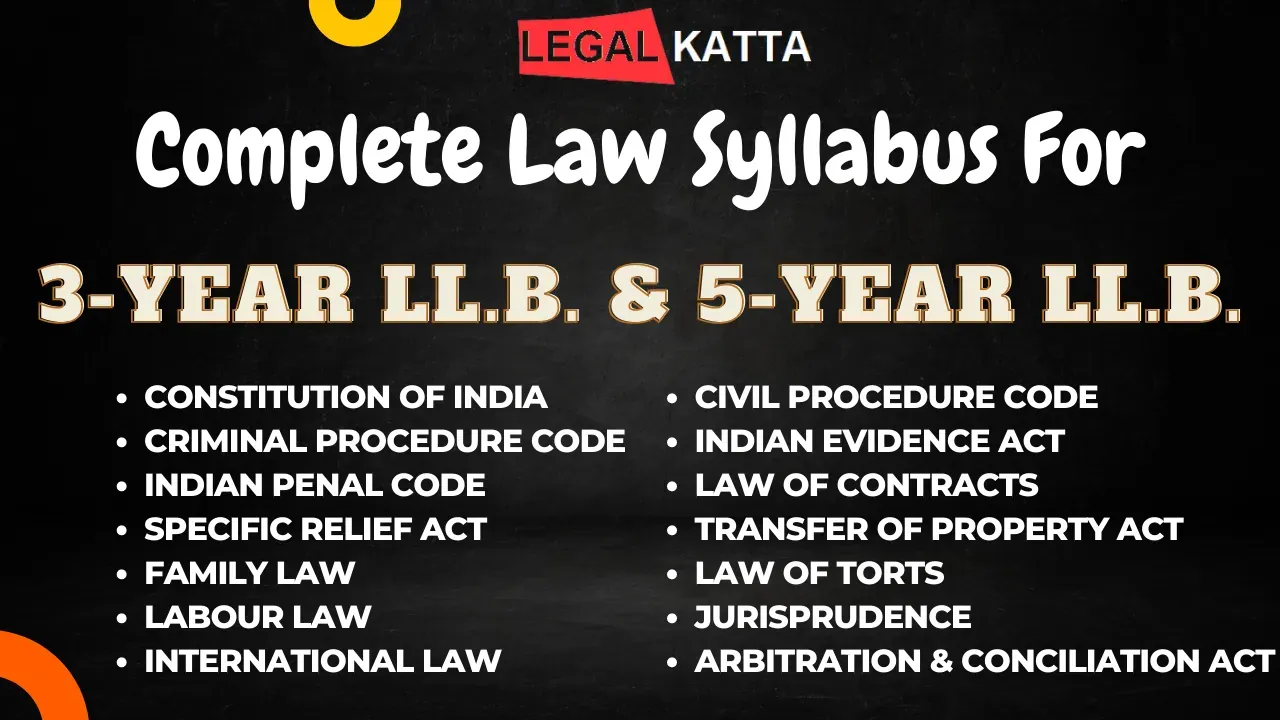Legal Notes
Legal notes will provide you with a broad and critical understanding of the structure and functions of the legal system. These legal notes are free and easy to access law notes. The law notes available for all law students of UGC NET/SET and judiciary aspirants. Here's the list of subjects you can study at Legal Katta. Please check the below-mentioned list for complete law notes.
Civil Procedure Code
Civil Procedure Code is the body of law that sets out the rules and standards that courts follow when adjudicating civil lawsuits.
Criminal Procedure Code
The Code of Criminal Procedure is the main legislation on procedure for administration of substantive criminal law in India.
Indian Evidence Act
The Indian Evidence Act, 1872 originally passed in India by the Imperial Legislative Council in 1872, during the British Raj.
Indian Penal Code
IPC is the official criminal code of India. It is a comprehensive code intended to cover all substantive aspects of criminal law.
Law of Contracts
Contract is an agreement that specifies certain legally enforceable rights and obligations pertaining to two or more mutually agreeing parties.
Specific Relief Act
Specific Relief Act, 1963 provides remedies for persons whose civil or contractual rights have been violated.
Transfer of Property Act
The Transfer of Property Act 1882 is an Indian legislation which regulates the transfer of property in India.
Family Law
Family law (also called matrimonial law or the law of domestic relations) is an area of the law that deals with family matters and domestic relations.
Law of Torts
A tort is a civil wrong that causes a claimant to suffer loss or harm, resulting in legal liability for the person who commits the tortious act.
Labour Law
Labour laws (also known employment laws) are those that mediate the relationship between workers, employing entities, trade unions, and the government.

